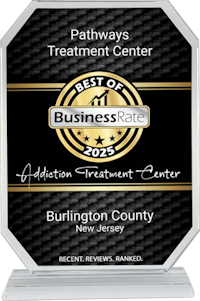Many people imagine relapses only happen during difficult times of life, when someone is plagued with stress, loneliness, or overwhelming challenges. But what about when life is going well?
The truth is that positivity doesn’t equal immunity. Moments of celebration can sometimes trigger unexpected vulnerabilities, especially if you’re navigating recovery. The holidays, with their mix of social gatherings, emotional highs, and nostalgia, can create a perfect storm that allows old patterns to resurface.
Recovery is about staying grounded even when the sun is shining. Understanding why relapses can happen during good times is the first step to staying strong, no matter what the season brings.
What is a Relapse?
A relapse is when a person starts using substances again after maintaining sobriety for a period. It often means you’ve actively decided to abandon your recovery efforts. It doesn’t mean you’re back at the bottom, but it can feel frustrating and disheartening.
A “freelapse” is where a person accidentally consumes a substance without knowledge or intent. For example, you may unknowingly consume an alcoholic beverage thinking it was nonalcoholic.
Then there’s a slip, also known as a lapse. This is more like a tiny stumble where you cave to a craving or let stress push you into an old coping mechanism for a brief moment. The key difference is that a slip is short-lived. You catch yourself, regroup, and get back on track without letting it derail your progress. All three forms of relapse are part of the messy, human process of growth.
Why Does Success Sometimes Feel Like a Setback?

Success can be tricky. You’re climbing, pushing, grinding, achieving, and you feel good. Suddenly, old habits start creeping back in and the discipline that got you there starts to fade. You might feel like you want to ease back a little bit.
When things are rough, survival mode can keep a person sharp. You’re focused because you have to get along or get through a difficult time. But when the struggle fades, so does the urgency. That’s when old destructive patterns can sneak in. Success can lower your guard, making it easier to slip.
Progress itself can also come with pressure. The more accomplishments or responsibilities a person takes on, the further and faster they feel they can fall. Sometimes, relapsing can feel like hitting pause and pulling back before the stakes get even higher.
But a temporary relapse doesn’t erase progress, and the habits you build during recovery don’t just disappear. Relapse is common. It doesn’t mean a person is “doomed” to use addictive substances.
Why Do We Self-Sabotage When Life Gets Good?
Everything’s finally falling into place and you’re sprinting past addiction milestones one after the other. But out of nowhere, you start procrastinating, skipping routines, and falling back into old habits. It doesn’t make sense, but it happens.
Many people resort to acts of self-sabotage when they sense positive changes in their lives. This can happen for a few reasons:
- Fear of the Unknown: Success brings change, and change can feel unpredictable. Even if life wasn’t great during the period of addiction, at least it was familiar. Messing up can feel safer than stepping into a new pattern.
- Pressure to Keep It Up: Once you’ve “leveled up” in life, the thought of maintaining that progress can be overwhelming. Slipping up before things get too serious feels easier than working hard and potentially failing later.
- Reward Mentality: “You did great, you deserve a break!” While resting and self-restoration are healthy, that inner voice may convince a person to slack off on regular work regarding recovery. One “reward” can turn into another, and suddenly a pattern of substance use has re-emerged.
- Hidden Beliefs About Success: Deep down, you might feel like you don’t deserve the good effects of sobriety. Happiness can feel unnatural if you’re used to working hard, so many people unconsciously sabotage their own happiness out of self-imposed beliefs.
- Comfort in Chaos: If you’ve spent years navigating stress and setbacks, peace can feel weird or unsettling. Without the usual problems to fix, the mind sometimes creates new ones to feel “normal” again.
Why Do People Crave Chaos in Calm Moments?
Most people have experienced the itch to stir things up once their life reaches a calm and settled pace. It’s like the calm itself makes people restless, and they start craving a bit of chaos. Here’s why this may take place:
- The ‘Too Good to Be True’ Syndrome. When things are going smoothly, some people get suspicious. They feel like they’re waiting for something to go wrong, for “the other shoe to drop.” This anxiety can lead them to create problems just to feel in control again.
- Boredom Breeds Mischief. After constant hustle and stress, peace can feel boring. That restlessness might push people to seek out drama or challenges to break the monotony.
- Comfort in the Chaos. If you’re used to living in a whirlwind, calm can feel unfamiliar. It may even feel uncomfortable. A person may unconsciously create chaos because it’s what they know.
- Fear of Success. Achieving goals can be intimidating. The pressure to maintain success or the fear of losing it might lead a person to self-sabotage to alleviate stress. This then disrupts the calm they’ve worked for, which can create a destructive cycle.
The Stages Of Relapse
Relapse is a process that unfolds in stages. Recognizing these stages can empower you to take action before things spiral out of control.
At this stage, a person may not be actively thinking about using drugs again. But their emotions and behaviors might be setting them up to do so. Signs include:
- Bottling up your emotions
- Isolating from friends and family
- Neglecting self-care
- Mood swings
Here, a person may want to stay on track. But another part of them may be tempted to return to old habits. Indicators include:
- Glamorizing past use
- Thinking about people, places, or things associated with past use
- Lying about your thoughts or feelings
- Planning a relapse around others’ schedules
This is the stage where you return to substance use. It often starts with a “lapse” (the initial use) followed by a “relapse,” a full return to addiction-based behavior. Intervening during the earlier stages of relapse can prevent reaching this point.

How Can You Prevent Relapse?
Navigating the path of recovery can be challenging, but implementing effective strategies can significantly reduce the risk of total relapse. Here are some practical steps to help maintain your progress:
- Identify Personal Triggers. Recognize situations, people, or emotions that may tempt you to revert to old habits. Understanding personal triggers allows you to develop strategies to avoid or manage them effectively.
- Build a Support Network. Surround yourself with supportive friends, family, or support groups who understand your journey to sobriety and can offer encouragement during challenging times.
- Practice Self-Care. Engage in activities that promote physical and mental well-being, such as regular exercise, healthy eating, and healthy sleep. These habits can enhance resilience against potential triggers.
- Develop Coping Strategies. Learn and practice techniques to manage stress and cravings, such as meditation. These tools can help you navigate challenging situations without reverting to old behaviors of addiction.
- Set Realistic Goals. Establish achievable objectives for your personal and professional life. Setting and accomplishing these goals can provide a sense of purpose and motivation, reducing the temptation to relapse.
- Attend Support Groups. Participate in meetings or group therapy sessions to share experiences and gain insights from others on the path to recovery.
- Create a Relapse Prevention Plan. Work with a therapist or counselor to develop a personalized treatment plan that includes recognizing warning signs, coping mechanisms, and steps to take if you encounter potential triggers.
Receive Support For Addiction At Pathways Treatment Center
Embarking on the path to recovery is a courageous decision. At Pathways Treatment Center, we’re here to support you every step of the way. Our comprehensive programs are designed to address various aspects of addiction, ensuring a holistic approach to healing.
At Pathways, we believe in personalized care. Our team collaborates with you to create a treatment plan tailored to your unique needs, ensuring the best possible outcomes. Seeking help is a sign of strength. Within our serene premises, we’re committed to guiding you toward a healthier, fulfilling life. Contact us today and learn how to build a more fulfilling life.



